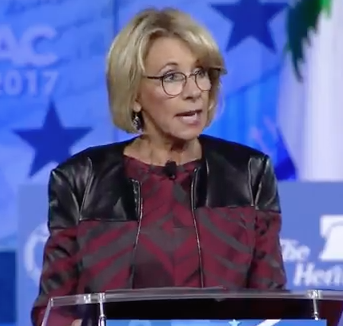Higher Education Reporting Bias?

An article in The Washington Monthly promises Everything You Always Wanted to Know About Higher Education Policy but doesn’t quite deliver.
Perhaps this should not surprise. It is written by two activists from the progressive New America Foundation and that bias is apparent in their approach. Nevertheless, they do go a bit further than most education journalists in critiquing institutions of higher learning.
“For decades, Washington offered U.S. colleges and universities a sweet deal,” Jared Bass and Clare McCann write. “In return for about $150 billion a year in federal subsidies, institutions have been asked to meet only the lowest of bars.”
“Washington does not require them to, say, boost graduation rates or recruit more lower-income students or even prove that their students are learning anything. The money just flows out, with virtually no accountability for results.” True enough, as we’ve frequently pointed out.
However, then the writers go on to compare the past presidential administration unfavorably with this one. “That began to change a bit under Obama,” they write. “While his administration fell short of its proposal to create a federal ranking system for college performance and ask lawmakers to tie federal funding to it, it did push through a number of tough regulatory changes.”
“These include a ‘gainful employment’ rule to cut off federal aid access for low-value certificate and for-profit programs, a ‘state authorization’ rule that requires colleges to meet any state requirements to offer online courses, and a rule designed to provide relief for borrowers who were defrauded by their (overwhelmingly for-profit) schools and hold the colleges accountable.”
“Betsy DeVos is already well on her way to eliminating all three rules via executive action.” Actually, this characterization is neither fair nor accurate.
What the U. S. Department of Education is planning to do under Secretary DeVos is to make all colleges, not just the for-profit ones, show gainful employment data. This is pretty clear from the proposed rule change.
According to the DOE fact sheet, “To provide prospective students with important, actionable, and accurate information that could be used in college enrollment and borrowing decisions, the Department plans to update the College Scorecard or a similar web-based tool to provide program-level outcomes (including, at a minimum, median debt and median earnings) for all higher education programs, at all title IV participating institutions. “
This is, pretty much, the proposed rule as currently written. Additionally, Secretary DeVos made clear that was the intent in her own statements. “Students deserve useful and relevant data when making important decisions about their education post-high school,” Secretary DeVos stated. “That’s why instead of targeting schools simply by their tax status, this administration is working to ensure students have transparent, meaningful information about all colleges and all programs. Our new approach will aid students across all sectors of higher education and improve accountability.”
For profit colleges, the bete noire of Democrats, account for a small but growing proportion of college students. Moreover, the non-profits that give most of their campaign contributions to Democrats, view them as a real threat.* “For-profit colleges and universities are a growing presence in American higher education,” according to the Education Writers Association. “The sector accounted for an estimated 13 percent of all U.S. college students in 2009—up from 5 percent in 2001—as well as an outsize share of the federal financial-aid dollars that help students cover the cost of higher education.”
“For instance, nearly 25 percent of Pell Grant funds—need-based awards that the federal government provides to students from low-income families—go to students of for-profit schools.” Perhaps for this reason, Democratic public officials do seem to go easy on non-profits. Bass and McCann even indicate as much in their piece.
In current congressional battles, they note, “Democrats, by contrast, called for a renewed crackdown on predatory for-profit schools. With respect to traditional public and private nonprofit colleges, they were more sanguine, mostly focusing instead on expanding federal financial aid programs to make those schools less expensive. They, too, were reluctant to pursue strong new federal policies aimed at holding accountable those colleges with low graduation rates and low rates of student loan repayment.”
(By the way, we’ve never been able to find an instance in which media or academic elites used the adjective “predatory” to describe, say, George Soros.)
*According to Open Secrets, for example, University of California gave more than two million dollars to Democrats in 2017-2018.




